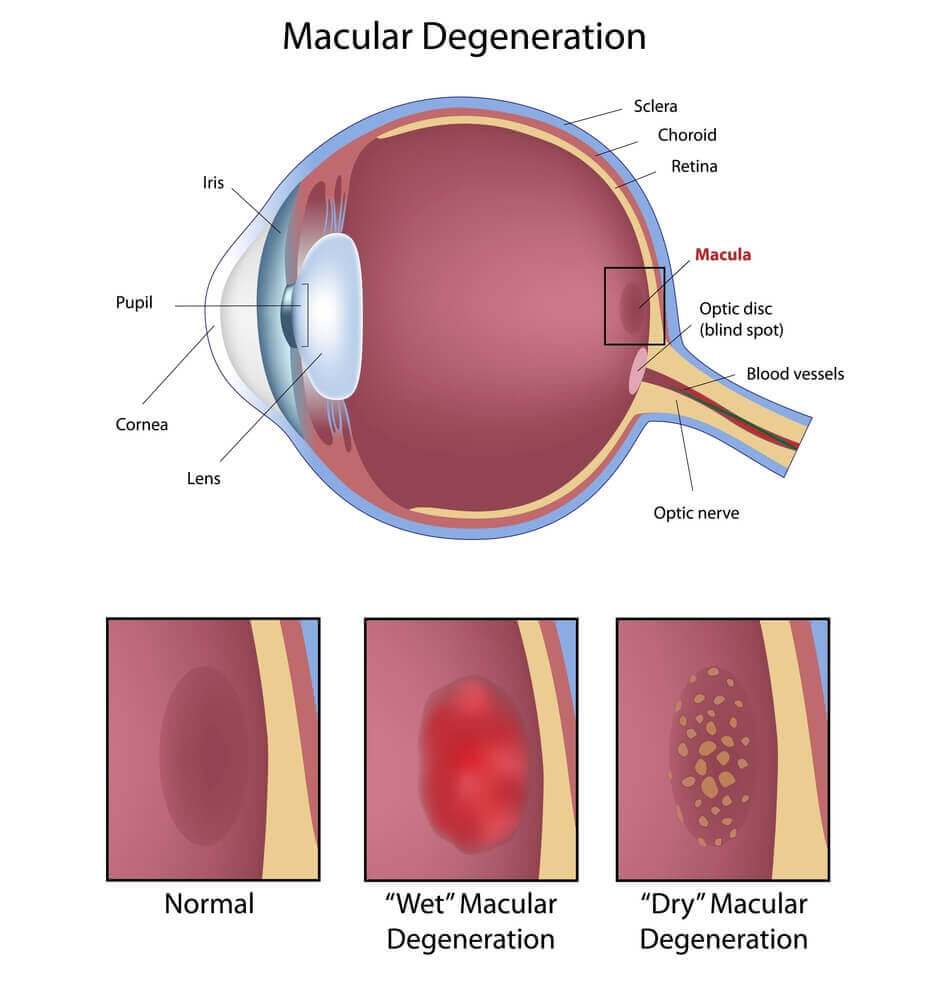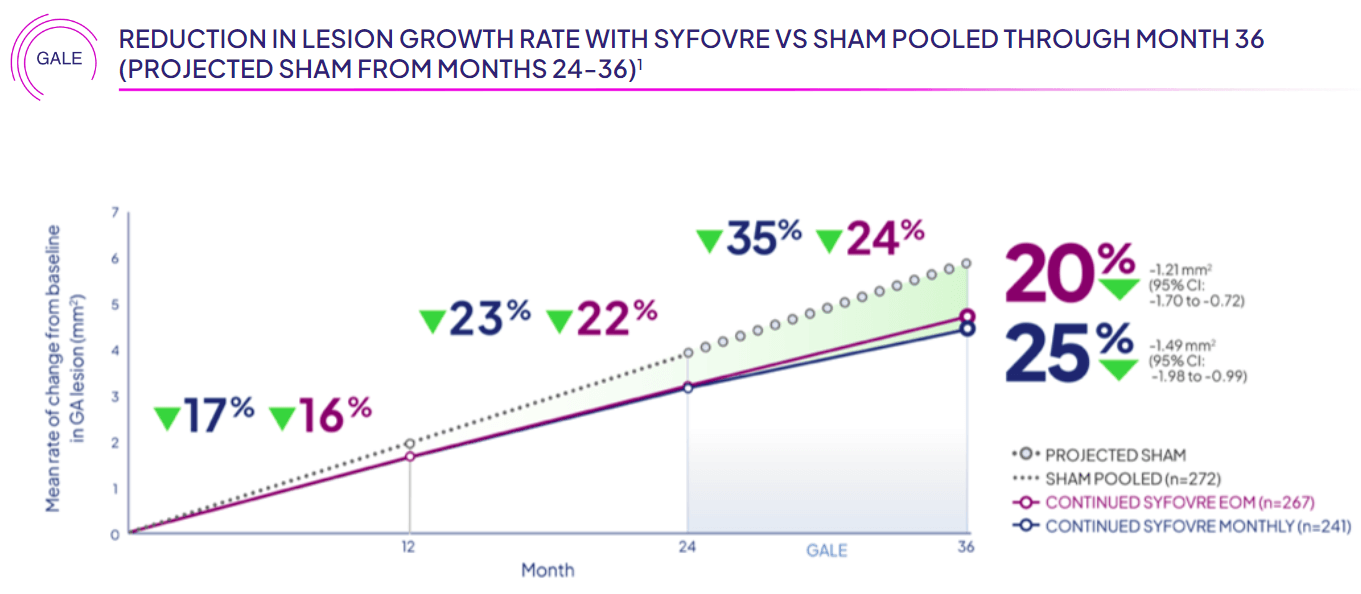Age-related macular degeneration (AMD) occurs when the small, central part of the retina, called the macula, deteriorates. With AMD you may lose your central vision and have difficulty seeing fine details. AMD by itself does not cause complete blindness as your peripheral (side) vision will not be affected.

If you’re in the early stages of age-related macular degeneration you may not have symptoms. As the condition progresses, you may notice:

There are two types of AMD: Dry AMD (the most common type) and Wet AMD.
By far the most common type, about 80% of people who have AMD have the dry form. Dry AMD is a gradual deterioration of the cells in the macula, which is the central part of the retina at the back of the eye. Dry AMD occurs when there is an accumulation of drusen, a yellow deposit that forms beneath the retina. Drusen may initially be harmless but over time can result in retinal degeneration and in the loss of central vision. Unlike “wet” AMD, which involves abnormal blood vessel growth, dry AMD occurs when the retinal cells die off and are not renewed.

This form of AMD is less common but much more serious. Wet AMD occurs when new, abnormal blood vessels grow under the retina. These vessels may leak blood or other fluids, causing scarring of the macula.
Today, there is no cure for macular degeneration. The goal of treatment is to slow down the disease and stabilize it so you do not lose your vision.
Certain people with dry AMD might benefit from taking a combination of nutritional supplements, or using targeted light therapy to rejuvenate cells in the retina. This supplement is called AREDS2, which is a special combination of vitamins and minerals that have been shown to slow the progressions of the condition. An eye exam is necessary to determine if AREDS2 is right for you.
To help treat wet AMD, there are medications called anti-VEGF medications. In certain people, treatment with anti-VEGF will improve vision.
Again, regular exams with your Mann Eye retina specialist Dr. Mohsenin is the best way to make sure your AMD is monitored and controlled. /if you have AMD, you will be happy to know that Dr. Mohsenin has a particular passion for AMD. In his previous role as a medical school professor, Dr. Mohsenin directed an NIH-funded research laboratory dedicated to macular degeneration research. His PhD training in biochemistry and molecular biology coupled with his understanding of AMD at the molecular level give him a perspective not commonly seen in retina specialists.
The Mann Eye Institute is a leading eye care facility with sixteen locations in Humble, West Humble, Houston, Central Austin, North Austin, Sugar Land, Katy, Spring, The Woodlands, Livingston, Bay City, Pearland, Baytown, Tomball, Sun City, and Cleveland, Texas. With various locations in the Houston and Austin areas we can provide the full continuum of care, including; designer eyewear and eye care needs, LASIK eye surgery, cataract surgery, premium lens implants and dry eye treatment options. If you are seeking expert eye doctors in Texas contact us today!
Pearland Office
10223 Broadway St., Ste. J
Pearland, TX 77584
(281) 971-9332
Spring Office
2616 FM 2920 Ste. I
Spring, TX 77388
(281) 353-8300
Tomball Office
14079 FM 2920
Tomball, TX 77377
(346) 701-4029
Katy Office
750 Westgreen Blvd.
Katy, TX 77450
(281) 392-3937
Humble - Deerbrook Office
9802 FM 1960 W, Ste. 110
Humble, Texas 77338
(281) 446-9333
Sugar Land Office
6424 E. Riverpark Dr.
Sugar Land, TX 77479
(713) 580-2525
Humble - S. Memorial Office
18850 S. Memorial Blvd.
Humble, TX 77338
(281) 446-7900
Livingston Office
1601 US-59 Loop North, Ste. 100
Livingston, Texas 77351
(936) 327-3937
Cleveland Office
429 West Southline
Cleveland, TX 77327
(281) 592-4343
Bay City Office
3612 Avenue F
Bay City, TX 77414
(979) 244-1450
Baytown Office
4750 East Freeway
Baytown, TX 77521
(281) 421-2020
South Austin Office
2600 Via Fortuna, Ste. 400
Austin, TX 78746
(512) 327-4123
North Austin Office
4314 W. Braker Lane Ste. 215
Austin, TX 78759
(512) 200-3937
Sun City Office
1530 Sun City Blvd., Ste. 150
Georgetown, TX 78633
(512) 327-3792